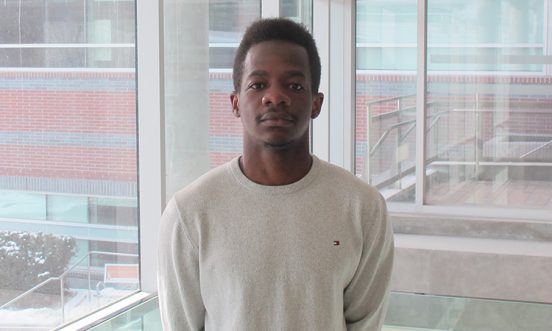By: Justice Mubayiwa
With the conclusion of the regular season creeping closer and closer the top teams in the NBA are jostling for playoff seeding. While you may expect the most heated competition to occur between the cream of the crop, there is also a significant race to the bottom of the standings. With the realization that playoff success is not in the cards, many of the leagues bottom feeders are now jockeying for position in an attempt to position themselves to win the NBA Draft lottery.
Teams who have missed the playoffs in the previous season participate in a lottery process to determine the draft order in the NBA draft. Under the current rules, only the top three picks are decided by the lottery and are chosen from the 14 teams that do not make the playoffs.
The team that holds the draft rights of the team with the worst record, has a 25% chance to obtain a higher draft pick.
In the bottom half of the NBA standings, teams are making it very clear that they value these early draft picks over finishing in the middle of the road. In a typical regular season, four or five teams will win 29 games or less. Occasionally, the NBA will have six or (rarely) seven teams that meet that criteria.
Coming out of All-Star weekend, 9 teams are already on pace to win 29 games or fewer. This is what NBA fans will refer to as “Tanking”. Tanking happens in the NBA when a struggling team essential shuts down as title contenders and begin to contend for the number one draft pick. By intentionally losing, teams directly affect their chance of securing a higher draft pick.
As radical as it may sound, teams have already openly implemented this strategy and have begun to reap their reward. The Philadelphia 76ers now have Joel
Embiid, Ben Simmons and Markelle Fultz to show for their past three poor seasons. Ben Simmons is a runaway rookie of the year averaging 16 PTS, 7 Reb
and 7 Ast. Not to be outdone his teammate Embiid has already been named an NBA All-Star. This season the young Sixers have pulled themselves from three straight seasons at the bottom of the league to a team in playoff position, already surpassing last seasons win total by eight games.
The architect of that master plan was 76ers general manager Sam Hinkie, who was hired as the 76ers GM in 2014. By 2016 the league was already fed up with his radical strategy and forced him to step down from his position with the 6ers.
Hinkies thinking was that historically, championship teams rely on star players to win. Hinkies belief was that the surest way for his team to get one of these stars was through the draft. Because the NBA rewards the highest to the worst teams, the Sixers best strategy would be to play poorly at an accelerated pace to acquire potential stars in sequential years. Concerned that such terrible play was bad for the league’s bottom line, the league’s owners marginalized Hinkie by forcing the team to have accepted oversight by a former GM in 2015. Eventually, Hinkie realized he no longer had control of the team operations and resigned.
Although the “tanking” did not result in a happy ending for Hinkie, his plan seems to be having its intended impact in 2018. The Sixers are current title contenders with a young core of potential All-Stars. Many other teams such as the Lakers, Kings and Suns have bought in and followed this strategy. This has resulted in abysmal on court showing, especially as the season closes.
This issue is that the league incentivizes losing more than they reward success that is short of a deep playoff run. A season short of a serious championship push is not worth the risk of losing a valuable pick. Drafting a young star, as the Sixers did with Embiid, Fultz and Simmons can turn your team from a laughing stock to a must-see show that sells out stadiums and contends for championships.
The league seems to understand that the best interest of individual teams does not necessarily line up with the prosperity of the NBA. While on the podcast of NBA Hall of Famer, Julius Erving, Mavericks owner Mark Cuban went as far as to openly admit that he did not intend to try to win games. Cuban stated that he told his players that, “losing is [their] best option”. He was promptly fined $600,000 dollars.
One proposal that has been mentioned by league official is for the 14 lottery-eligible teams to play a single elimination tournament for draft picks. The winner of the tournament will receive the first pick, the runner-up the second and so on. An even more radical proposal has been to allow each team to tie their draft rights to another team rather than themselves. The worst team will be able to select whichever teams draft rights they want for the next season.
Both of these proposals attempt to address the same issue. Cost of losing is balanced out by rewarding the worst teams at the end of the season. If teams have to play for their draft spot or are not in direct control of their drafting position once the season starts, the opportunity cost of not winning games would increase draft. Whatever route the NBA decides to take to address the issue will certainly have to include greater incentives to average teams or greater punishment for poor play.
It is almost certain that simple “reverse-standings” drafts are going out of favour with fans and executives. Losing at the highest level should not be celebrated or rewarded if the league wants to maintain its reputation of elite competition.

 Follow
Follow



